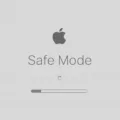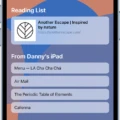If you’re an iPhone or iPad user, you may have wondered if there’s a way to use the same apps on your PC. Luckily, there are iOS emulators available that allow you to do just that. In this article, we will explore the top iOS emulator options and discuss why Apple has banned emulators on its App Store.
One of the best free iOS emulators for PC is iPadian. With iPadian, you can replicate the iOS interface on your computer, giving you access to a wide range of apps and games. It provides a seamless experience, allowing you to enjoy your favorite iOS apps on a larger screen.
Another popular iOS emulator is Smartface. Smartface is known for its user-friendly interface and ease of use. It allows you to test your iOS apps on different devices and screen sizes, making it a valuable tool for developers. With Smartface, you can also access the App Store and install apps directly on your PC.
MobiOne Studio is another great option for iOS emulation. It offers a comprehensive set of features, including app testing, design, and development tools. MobiOne Studio allows you to create and run iOS apps on your PC, making it a valuable resource for app developers and designers.
Xamarin Testflight is a highly regarded iOS emulator that is widely used by developers. It allows you to test your iOS apps on different devices and operating systems, ensuring compatibility and performance. Xamarin Testflight also offers advanced debugging and profiling tools, making it an excellent choice for app development and testing.
Now, let’s address the question of why Apple bans emulators on its App Store. While Apple does not provide a clear explanation, it is widely believed that the ban is in place to prevent piracy. Emulators have the potential to enable users to play illegally distributed games, which could impact the revenue of new, paid games on the market. By restricting emulators on its App Store, Apple aims to protect the rights of developers and maintain a fair gaming environment.
IOS emulators offer a fantastic opportunity for iPhone and iPad users to experience their favorite apps on a PC. While Apple may have its reasons for banning emulators on its App Store, there are still reliable options available for users who want to enjoy iOS apps on their computers. Whether you choose iPadian, Smartface, MobiOne Studio, or Xamarin Testflight, you can expect a seamless and enjoyable emulation experience. Give it a try and expand your app usage beyond your iPhone or iPad!

Is There Any iOS Emulator?
There are several iOS emulators available for PC. These emulators allow you to run iOS apps on your computer, giving you the ability to use iPhone or iPad applications without owning the actual devices. Here are some of the best free iOS emulators for PC:
1. iPadian: iPadian is a popular iOS emulator that provides a virtual iPad-like interface on your PC. It allows you to run iOS apps and games, and provides a similar user experience to an actual iPad. However, it should be noted that not all apps may work perfectly on iPadian.
2. Smartface: Smartface is another reliable iOS emulator for PC. It offers a comprehensive development environment for app developers, but it can also be used by non-developers to run iOS apps on their computers. Smartface supports both Windows and macOS.
3. MobiOne Studio: MobiOne Studio is an easy-to-use iOS emulator that allows you to run iPhone and iPad apps on your PC. It provides a simple interface and comes with various features for app testing and development. However, it’s important to note that MobiOne Studio has been discontinued, so it may not offer full compatibility with the latest iOS versions.
4. Xamarin Testflight: Xamarin Testflight is a popular iOS emulator for PC developed by Microsoft. It is primarily used for app testing and debugging purposes, but it can also be used to run iOS apps on your computer. Xamarin Testflight supports both Windows and macOS.
It’s worth mentioning that while these emulators provide a way to run iOS apps on your PC, they may not offer the exact same experience as using an actual iPhone or iPad. Some apps may not work perfectly or may have limited functionality due to the differences in hardware and operating systems between iOS devices and PCs.
If you want to use iOS apps on your PC, you can consider using emulators like iPadian, Smartface, MobiOne Studio (discontinued), or Xamarin Testflight. However, it’s important to remember that these emulators may have limitations and not all apps may work perfectly.
Are Emulators Banned on iOS?
Emulators are banned on the Apple App Store. Apple does not explicitly state the reason for this ban, but it is widely believed to be due to concerns about copyright infringement and illegal distribution of games.
Here are some possible reasons why Apple bans emulators on its platform:
1. Copyright infringement: Emulators allow users to play games from various gaming consoles, including those owned by other companies. This can potentially lead to copyright infringement if users play games that they have not legally obtained. Apple wants to uphold copyright laws and protect the rights of game developers and console manufacturers.
2. Illegal distribution of games: Emulators can be used to play games that are not officially available on iOS or that have been illegally distributed. This can result in a loss of revenue for game developers and publishers. Apple aims to prevent the distribution of unauthorized and pirated games on its platform.
3. Quality control: Emulators may not meet Apple’s quality standards and guidelines for app development. Apple maintains strict control over the apps available on its App Store to ensure a consistent and high-quality user experience. Emulators may have compatibility issues, bugs, or performance problems that can negatively impact the user experience.
4. Security concerns: Emulators can potentially introduce security risks to the iOS ecosystem. Apple has a strong focus on maintaining the security and integrity of its platform. Allowing emulators could increase the risk of malware and other malicious software being distributed through the App Store.
It’s important to note that while emulators are banned on the App Store, they can still be used on iOS devices through other means. Users can sideload emulators using third-party app stores or by jailbreaking their devices. However, these methods are not supported or endorsed by Apple and may void the device’s warranty.
Apple bans emulators on its App Store due to concerns over copyright infringement, illegal game distribution, quality control, and security risks. By enforcing this ban, Apple aims to protect the rights of game developers, maintain a secure platform, and provide a consistent and high-quality user experience for its customers.
Why Doesn’t Apple Allow Emulators?
Apple does not allow emulators on iOS devices primarily to prevent piracy. Emulators are software programs that allow users to run games and applications designed for other platforms on their devices. While there may be legitimate uses for emulators, such as running older software or testing apps, they are often associated with copyright infringement and illegal downloading of ROMs (read-only memory files) for games.
Here are the main reasons why Apple curbs iOS emulators:
1. Intellectual Property Protection: Emulators can be used to run games and applications that are protected by copyright laws. Allowing emulators on the App Store could potentially facilitate the unauthorized distribution of copyrighted content, leading to intellectual property infringement. Apple is committed to protecting the rights of content creators and ensuring that users have access to legal and licensed content.
2. App Store Revenue: The App Store is a significant source of revenue for Apple, as developers pay a percentage of their sales to Apple for hosting their apps. Allowing emulators would open the door for users to load a plethora of older, often free, games onto their devices, potentially reducing the demand for new, paid games on the market. This could impact the revenue generated from the sale of new games on the App Store.
3. Quality Control: Apple maintains strict quality control over the apps available on the App Store to ensure a positive user experience. Emulators can be complex software programs that may not meet Apple’s stringent guidelines for stability, security, and performance. By preventing emulators from being available on the App Store, Apple can maintain a higher level of quality control and protect users from potentially harmful or unreliable software.
4. Legal Compliance: Emulators can also raise legal concerns regarding licensing agreements and copyright infringement. Apple needs to comply with various legal requirements and agreements with developers and content creators. Allowing emulators on the App Store could potentially lead to legal complications and disputes.
Apple’s decision to curb iOS emulators is primarily driven by the need to prevent piracy, protect intellectual property rights, ensure quality control, and comply with legal obligations. By maintaining strict control over the apps available on the App Store, Apple aims to create a secure and reliable environment for users while supporting developers and content creators.
What is the Emulator for iOS Without Jailbreak?
The emulator for iOS without jailbreak is called NDS4iOS. It is an excellent choice for gamers who want to play Nintendo DS games on their iOS devices without the need for jailbreaking. NDS4iOS offers a smooth and enjoyable gaming experience, especially for Pokemon games.
Another popular iOS emulator without jailbreak is GBA4iOS. This emulator is specifically designed for Game Boy Advance games and provides a seamless gaming experience on iOS devices. With GBA4iOS, you can relive your favorite GBA games without the need for jailbreaking.
If you are looking for an emulator that allows you to download games directly within the app, iNDS is a great option. This iOS emulator eliminates the need for external ROMs and allows you to download games directly within the app itself. It offers a wide range of games and provides a user-friendly interface for a hassle-free gaming experience.
The top three iOS emulators without jailbreak are NDS4iOS, GBA4iOS, and iNDS. These emulators cater to different gaming preferences and provide a seamless gaming experience on iOS devices.
Conclusion
The iOS 15 emulator is a highly sought-after tool for those who want to experience and test iOS apps and games on their PC. While Apple does not officially support or provide emulators for iOS devices, there are third-party options available that can be used to replicate the iOS environment on your computer.
There are several reasons why iOS emulators are popular among users. Firstly, they allow developers to test their apps on different iOS versions without the need for physical devices, saving time and resources. Secondly, iOS emulators provide a way for users to enjoy iOS-exclusive apps and games on their PC, expanding their options and entertainment possibilities. Additionally, emulators can be helpful for those who want to familiarize themselves with the iOS interface or learn iOS development without investing in expensive Apple devices.
When it comes to choosing the best iOS emulator, it ultimately depends on your specific needs and preferences. iPadian, Smartface, MobiOne Studio, and Xamarin Testflight are among the top free options available for PC users. Each emulator has its own features and capabilities, so it’s important to research and compare them to find the one that suits you best.
It is worth noting that while iOS emulators provide a convenient way to experience iOS apps on PC, they are not a substitute for owning an actual iOS device. Emulators may not fully replicate the performance, features, and user experience of a real iOS device, and some apps or games may not work perfectly or at all on emulators.
IOS emulators offer a valuable solution for developers, enthusiasts, and users who want to explore the iOS ecosystem on their PC. They provide a means to access and test iOS apps and games, expand entertainment options, and learn about iOS development without the need for physical iOS devices. With the right research and choice, you can find an iOS emulator that meets your requirements and enhances your iOS experience on PC.













